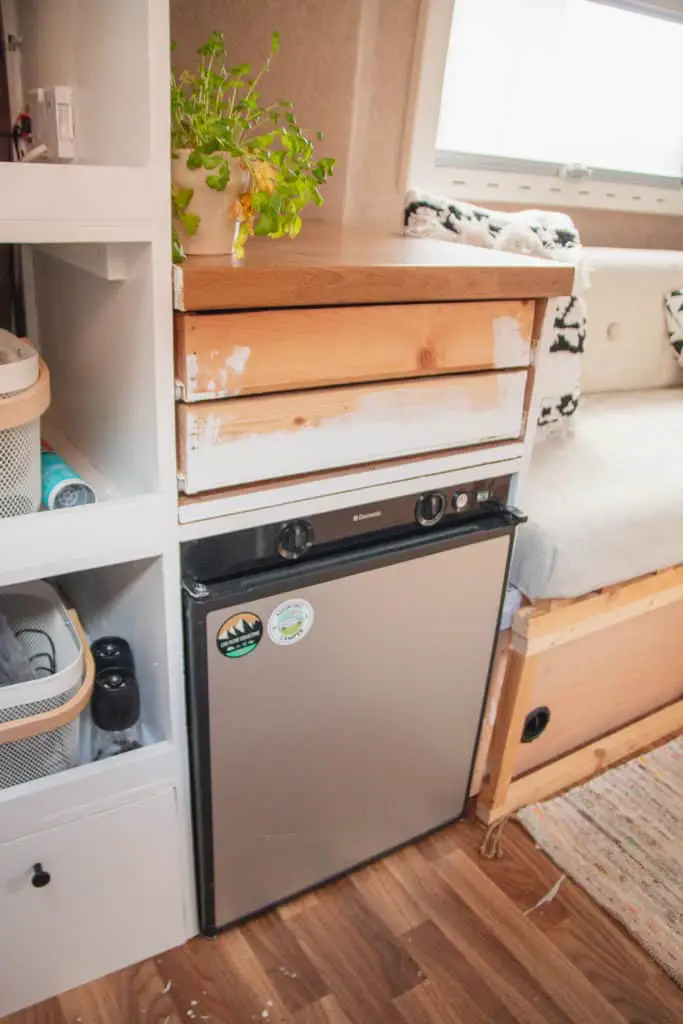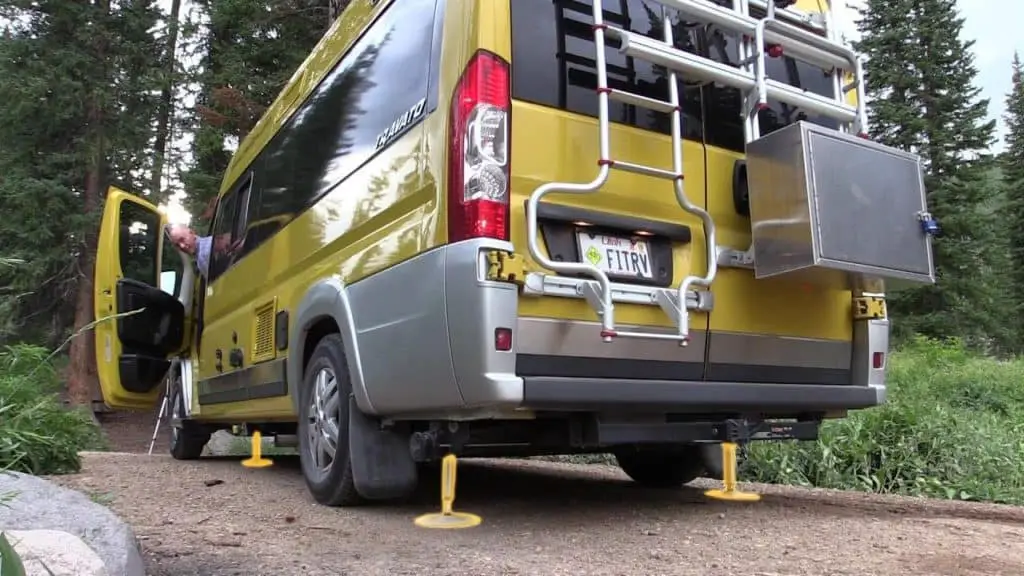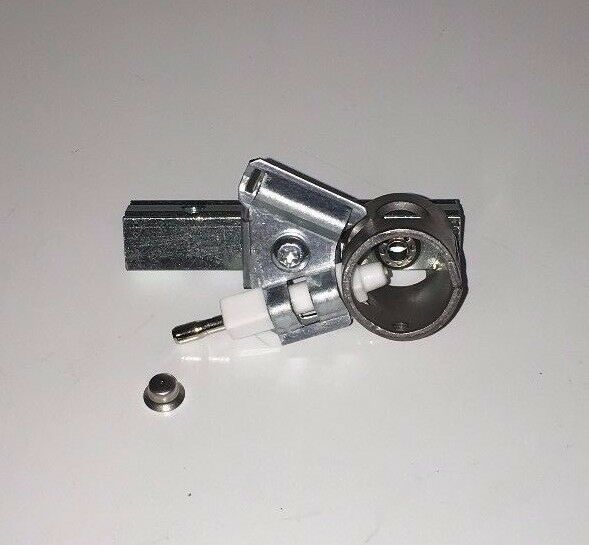When you are out on the road traveling in your camper van, it can really put a damper on your fun trip if the camper van’s fridge seems to stop working out of nowhere. You risk losing your food and wasting a lot of money if you can’t quickly diagnose and fix the problem with your camper van fridge.
You might be looking for ways to diagnose your camper van fridge on your own when it suddenly stops working. In this post, we outline some of the most common ways that your camper fridge might start malfunctioning and explain how to approach diagnosing the issue before deciding to call in a professional.
Understanding How Camper Fridges Work And Cool The Air Inside Them
Camper van refrigerators function differently from the typical household fridge because of how they are used. Because of this, even if you are familiar with a normal refrigerator, there are other things you should learn about the fridge in your camper van to help you understand how they work and where potential problems will occur.

A home refrigerator uses volt electricity with the cooling agent freon. In contrast, the fridge in your camper van will not have a compressor or use freon as a means of cooling down the insides of the fridge. Because you want your van fridge to be cooling even when the van is motionless, they typically run on both propane and electricity. Each power form kicks in when needed.
Here’s a closer look at the types of camper fridges you might have in your camper van with a few more details.
| Type of Fridge | Details About The Fridge |
| Propane/Electric Combination Fridge | The most common type of fridge in campers, this option uses both onboard electric and propane systems. |
| 12 Volt Electric | This camper fridge can handle a smaller load and might benefit from having a |
| Mini Fridge | This is the type of fridge you would see in a dorm room, great for places that have regular electric volts available, such as a camper that is always parked. Unlike the other camper fridges, this one does operate like a home fridge with freon. |
While a residential fridge can rely solely on electrical power to keep it running, to stay on consistently, fridges that are in campers have to switch between electric and propane power. Fortunately, most modern camper fridge units do this automatically, saving you from having to think about it each time you stop moving. When the camper is parked, you can rest assured that your fridge continues to cool.
Camper van fridges also cool their insides differently. They usually use a mixture of
- hydrogen gas
- ammonia
- water
This mixture needs to be heated up and then circulated around the fridge. This in turn causes evaporation and condensation. It is this process that cools down the refrigerator.
Understanding at least the basics of how your camper van fridge runs is an important first step in diagnosing any problems that you have with your unit. Within this set up and process, there are a number of things to consider when your camper fridge fails to continue cooling down your food.
Why Would The Fridge Suddenly Stop Working
A fridge that suddenly stops working is not only annoying but potentially costly. You might end up losing all of the perishable food. Hiring someone to fix the fridge can be costly as well. Replacing the fridge might not be the best option for you financially either.
There are a few common reasons why your camper van fridge might be experiencing troubles and knowing some of these issues can help you begin diagnosing the problem and get you on track to a fix. Let’s look at some of the most common issues that occur in camper van fridges.
Parking Your Camper Van on Uneven Ground Causes Problems For The Unit

If the fridge in your camper van seems to suddenly stop producing cold air, the very first thing you should check is whether your van is parked on even ground. This comes as a surprise to many camper van owners, but a van fridge that has stopped working might just be sitting unevenly because of how your van is parked. The parking location may seem irrelevant to your fridge, but it’s truly very important!
Modern van fridges typically can continue to function when they are not on level ground, but even these newer models can’t withstand the lopsided positioning for too long. After roughly 30 minutes of being on uneven ground, new versions of camper fridges can become permanently damaged. This is because the liquids inside the unit can leak to places inside the unit that they’re not supposed to get in.
This is certainly a situation you want to avoid to the best of your ability when traveling. However, being on uneven ground can happen pretty easily. This makes checking your positioning a good first step when troubleshooting your fridge. To see if this is the issue, simply move your van to a different location and see if doing so helps solve your problem. This simple fix is very common.
There Could Be A Buildup of Ammonia Sediment In Your Fridge
The cooling mixture of
- Hydrogen gas
- Ammonia
- Water
is constantly being heated and circulated throughout the camper van fridge. Through this and the process of evaporation, the fridge is able to maintain its colder temperatures and protect your food. This process is the most vital function of these camper refrigerators, but it is important to note that this system can sometimes lead to a leak.
Leaking ammonia, combined with an older fridge or a fridge that is not being used often enough, can result in a buildup of ammonia sediment. The buildup of ammonia sediment is a problem because it can clog up the important parts of the fridge.
If there are any clogs preventing the air from flowing, this will result in the cooling process being unable to take place. Without the flow and evaporation, your fridge will start to warm up.
How do you avoid sediment buildup in your camper fridge that uses ammonia to operate? Here are some things most relevant things to consider to keep your fridge healthy:
- Keep Your Fridge Active Is The Number One Tip: The easiest and most effective way to prevent a buildup of ammonia from happening in your camper van fridge is to simple avoid letting your fridge sit around unused for extended periods of time. Even if you let the fridge run from time to time, without bothering to power the rest of the van, you can prevent ammonia sediment buildup. Consistent use is important, and your best bet is to turn it on more than just a few times a year.
- Check The Bottom For Ammonia Buildup: The buildup of ammonia sediment on the bottom of your unit might start small, but the size of the buildup will only continue to get worse. If you notice the buildup occurring or your fridge seems to be trending less cold than it usually does, you might want to keep track of it and try removing the sediment.
- Try Using The Flip Trick: A suggested trick for managing the unfortunate ammonia sediment buildup is to take the entire fridge outside. Next, you want to flip the fridge so that the sediment moves around. This trick is more of a band-aid than a solution, but it might help you keep the fridge unclogged for longer.
If you are constantly dealing with ammonia buildup in your camper fridge, the only solution might be to replace parts or buy a new unit. This isn’t the best news to hear, but its important to remember to check for this issue before you travel. If you are constantly having a buildup problem, it might be your best bet to get a new unit before setting off on a trip where you can’t replace it.
The Parts In the Fridge Might Be Frozen
Although you want your camper van fridge to be cold, there actually is a point where it can become too cold and freeze. These van fridges operate by swirling a mixture of ammonia, water, and hydrogen gas through the cooling unit. If air is unable to circulate the mixture as it is intended to this will cause problems with the fridge’s ability to get cold and stay cold.
When the pieces of the unit become frozen solid, the cooling process of the camper van fridge is affected. Luckily, if you are someone who stays in warmer temperatures, this issue would probably never apply to you and most likely isn’t a part of the problem you are having with your fridge. In your troubleshooting phase you can most likely feel safe eliminating this option as your problem.
However, if your camper van was in stationed in freezing or negative temperatures for a good amount of time, it is possible that too much freezing may have occurred in your unit. If the temperature surrounding your camper fridge is cold enough, this freezing could happen as quickly as overnight!
Fortunately, however, if a frozen section is the problem you’re dealing with, it is easy to solve by trying just a few things:
- Use A lightbulb: Try using a lightbulb (60 watts or higher) near the camper fridge as a heat source to warm up the fridge slowly.
- Simply Raise the Temperature: If you turn up the temperature in your camper, you can probably melt the ice blockage in no time.
- Space Heaters: Taking a space heater and placing it right near the frozen camper fridge can help to melt the frozen block.
While a frozen blockage inside a camper van fridge might not necessarily be the most common issue, it can certainly happen. This issue is one of the easier ones to solve and you can fix it by thawing out your unit and use it again when it has returned back to normal.
The Camper Fridge’s Burner Could Have Stopped Working

A camper refrigerator that runs on propane should be used under advisement. One thing you should pay attention to is the altitude at which you are traveling with your van. It’s not recommended to run a propane camper refrigerator at altitudes higher than 5,500 feet. In this situation, you would want to only run your van fridge on electric power.
Your burner can be strained too much by the propane at a high altitude. If the burner gets too strained, then you might accidentally burn it out entirely. The best way to fix this issue is by removing or purging the cylinders that hold the propane. You need to clear out the excess air that is causing the burner to malfunction.
If removing the cylinders solves your problem, you are going to want to keep in mind van fridge best practices moving forward. The best way to avoid this in the future is to pay attention to your altitude and use the correct mode of power to prevent anything from stopping its normal functions.
You Might Just Have Too Much In Your Fridge
Diagnosing the issue with your camper fridge means exploring all the potential options! In this scenario, the cooling unit would only appear to be malfunctioning. Because the fridge’s cooling operation functions by circulating air around the unit, you can interrupt the process by loading the fridge up too full of items.
If the fridge is too full, the air cannot correctly circulate around the unit and ultimately, the cooling process won’t take place, and your fridge will start to get too warm. If this happens, you could be under the impression that your fridge isn’t getting and staying cold enough. Try simply removing any excess food items from the van fridge to see if that helps the problem.
Making sure you do not overload the van fridge is also an important factor that can strongly influence the lifespan of your camper van fridge. Pay attention to the amount of food you load into the fridge every time you use it. Keeping the fridge at proper levels eases its power responsibilities and can help your camper fridge last much longer.
There Might Be A Blockage Inside Your Cooling Unit
The fuel source in your cooling unit might not be functioning correctly if there is some sort of internal blockage. You will notice the blocking issue if some parts of the heating unit are much hotter than some of the other parts. You want the heat to be evenly distributed throughout the cooling unit because this indicates that the internal pieces of the fridge are operating correctly.
Any type of blockage would stop the cooling air from flowing through the entire unit, resulting in it not being able to keep your food cold. Solving this issue would require pinpointing where the blockage is and trying to move it or getting the parts replaced.
There Might Be A Leak Somewhere in The Fridge’s Cooling Unit
There are several liquids and gases working together to create the cooling effect inside your camper fridge. Unfortunately, there might come a time when the gas, ammonia, and water start to leak inside your unit. This will almost definitely lead to problems, and it could also potentially stop your fridge from working entirely.
There are some signs to look out for that indicate you might be dealing with a leak in your camper van fridge:
- You can smell ammonia
- You see yellow residue on the outside of the cooling unit
- The boiler is only warm and the absorber is very hot
If you think that you have a leak inside your unit, you might have to replace the fridge or have it taken apart by a professional.
Begin the Troubleshooting Process After Narrowing Down Your Problem
While there are certainly some common issues that might be the reason for your faulty refrigerator, you might not be certain what the issue is right away. This could be due to any number of circumstances, including,
- Differences in fridge models and brands
- Type of camper fridge
- Power source used by the camper fridge
- Some problems are visible and obvious, while others are more internal or unnoticeable to the eye
Because of the number of issues that could be wrong with your camper fridge, you might consider attempting to narrow down the potential issues. The best way to do narrow down your options is by restricting certain functions on the fridge and then using a process of elimination. To do crucial part of troubleshooting, you should try running the camper fridge in all of its possible operating modes. This could be:
- DC power
- Propane power
- Electricity Power
If the fridge operates on any of the modes but not the others, this helps you understand which area of the fridge might need attention. For example, if it runs on propane but not electricity, there is probably something wrong with the electricity components of your camper fridge unit. Narrowing down the options in this manner can help cut the list of problems in half and give you somewhere to focus.
Even further, if your camper fridge still does not work on any of the modes, you might be dealing with a fridge that needs to be entirely replaced. This is not a guarantee, but something to consider in your process of diagnosing the malfunctioning fridge.
Diagnosing an Electrical Issue In Your Camper Van Fridge
If you think that your camper fridge is having an electrical issue, there are a couple of things you can try to further test for the issue and try to get your fridge back to its normal functions. Electrical work can be very complicated. If you are ever too unsure about an action, it might be in your best interest to consider talking to a professional or having them check it out for you.
When you start trying to diagnose an electrical issue in your camper fridge, you should:
- Consult the Manual: The very first thing you should do is find the manual for the refrigerator. You can often find the manual to these appliances right on the manufacture’s website. This can help you understand much more about your specific model, its parts, and even see some troubleshooting suggestions.
- Look at the Fridge’s Power Source: You should always try plugging in your camper van fridge to a different location. By doing this, you can see if there was an issue with the power source you were using or even the outlet you were using.
- Check the Electrical Current: Be sure to look at the circuit breakers at the back of your fridge and consult the manual to help with navigation of the cooling unit’s parts. You might be able to fix the issue here by moving some of the fuses around. This is also where you should check for any noticeable damages. If anything is exposed or damaged, you will want to talk to an electrician to be safe.
Diagnosing A Propane Issue with Your Camper Van Fridge
Perhaps the issue with your camper fridge is coming from the propane source instead of the electrical components of your unit. If you think this is the case, there are a few types of problems that could be causing your fridge to stay warm or to not turn on at all. Here are the most common things to consider:
- Fuel Levels: If you didn’t check already, make sure that your propane tank has enough propane to make your fridge run. This is an important part of keeping your camper fridge running, and you should check it consistently. It’s also safe to double check this first!
- The Flame Will Not Light: If there is propane, but you do not see any flame, there could be something prohibiting the flame from reaching its full potential. This could be debris, dirt, rust, or anything trapped in the burner. Try carefully cleaning out this area to see if it helps your fridge cool down again.
- The Light Won’t Stay Lit: If the pilot light is not staying lit, you might have a poor gas floor in your unit. The thermocouple controls this part of your fridge, so try to clean out its flue, tubes, and inside the flame area. On the outside of your van, there is a place where the fridge connects, and you may need to clean the rust off of this to help with flow as well.
Safety Is Important When Diagnosing A Broken Camper Van Fridge

The fridge in your camper van is an important piece of your travel equipment, and it can be annoying to deal with issues and search for someone who can help you fix it. You might want to do it yourself to save time bringing it somewhere or save spending a lot of money.
However, electrical work and dealing with propane is something that should be taken seriously. While it might not be something you want to do, consulting a professional is extremely recommended if you are in over your head or are unsure what you are looking at when inspecting your unit.
There are many safety precautions that are a must when diagnosing issues in a refrigerator unit:
Cut Off The Power: When you are opening up the appliance, you should always make sure it is removed from the power source. Even if the camper fridge doesn’t seem to be running or won’ turn on, before touching anything internal, it is imperative that you unplug it from a power source for your protection.
Electrical Safety: If anything in the electrical components of your fridge is damaged, your safest option is to call a professional and have an electrician look at your unit. This could be an exposed wire or a wire that is frayed. Touching these or moving them incorrectly can be hazardous.
Heat: This type of fridge uses a heating process to cool down. This means that its internal temperature can be very hot when you start looking at it. Wait for it to cool and use gloves to protect your hands.
Other Danger: You never know what accidents can occur when you’re working on your fridge. To be safe, keep water and other liquids or food away from your working area.
Complexity: You might want to do it all yourself, especially when it seems simple. However, some diagnostic maneuvers can be complex and it’s smart to acknowledge this and ask for help when it is needed.
Not only will you protect yourself from potential hazards, but you will also lower the chances that your fridge stays permanently damaged. You might even avoid having to completely replace your unit and have it last longer in the long run. Some of these troubleshooting tips are easy to do on your own, but sometimes you can make the issue worse and cause irreparable damage.
